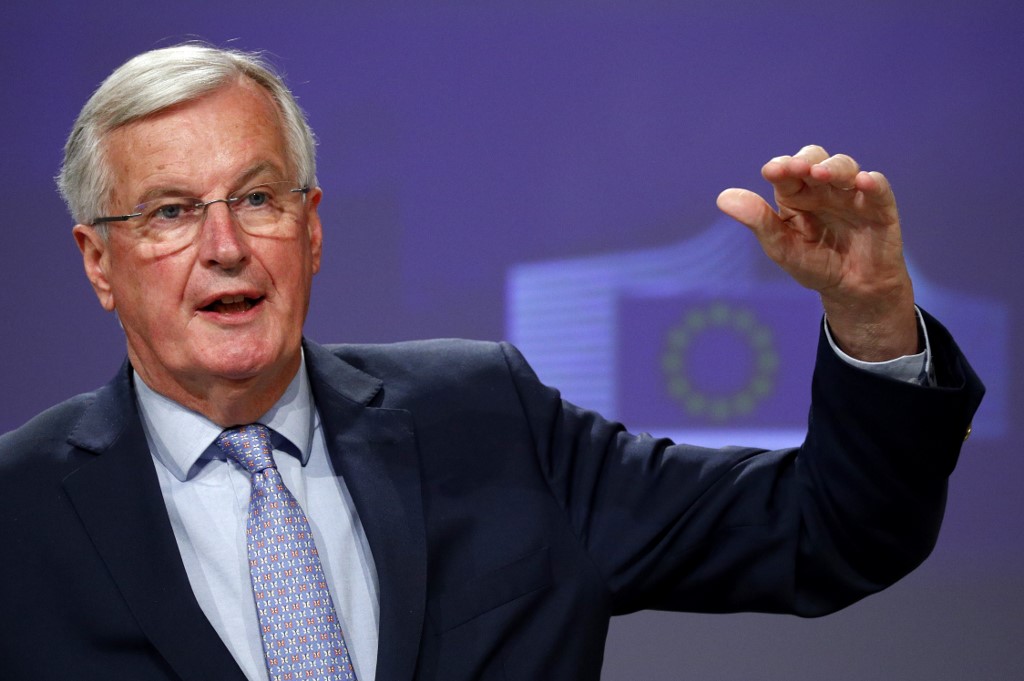Trade negotiators from Britain and the EU embark on a fourth round of post-Brexit talks on Tuesday but no-one in London or Brussels expects a breakthrough.
Instead, once the latest cross-Channel video conferences are over, Prime Minister Boris Johnson and EU chief Ursula von der Leyen will meet to decide how to proceed.
A “high-level” June meeting to take stock of the talks was already foreseen in the political declaration signed by both parties alongside the divorce accord.
But it may take on more urgency now, as talks between EU negotiator Michel Barnier and his UK counterpart David Frost have revealed stark differences in approach.
Deadly pandemic
Britain is not now expected to ask for any extension to the post-Brexit transition and so is on track to leave the single market and EU customs union on December 31.
If no trade deal is in place by then, experts predict severe disruption to businesses already reeling from a coronavirus pandemic that no-one expected when Britain voted to leave the union in June 2016.
Barnier, the Brussels veteran and former French minister tasked by the remaining 27 EU members with negotiating an orderly Brexit, said last week that the talks would be telling.
“I expect that I will find out whether the United Kingdom wants to leave the single market at the end of this year with an agreement or without one,” he told German radio.
Later, he told British weekly The Sunday Times that he and Frost have a “joint responsibility” to head off disaster.
“If we don’t get an agreement then that will have even more consequences. And then of course those will be added to the already very serious consequences of the coronavirus crisis,” he said.
But despite the urgency of the matter, there is still profound disagreement in how London and Brussels want to approach the search for new arrangements to oversee trade and cooperation.
‘Independent state’
Barnier has been given a mandate to seek an ambitious overarching agreement to oversee a so-called “level playing field” in manufacturing, labour and environmental standards.
This would give British firms access to most – but not all – of the benefits of the single market, without exposing their European rivals to attempts to undercut standards.
Frost and Johnson, however, say they only want a simple trade deal that would preserve UK sovereignty while allowing the vast majority of trade to remain tariff-free.
And, rather than placing this under the aegis of a unique EU-UK pact, they want to pursue a series of deals in separate sectors such as trade, fisheries, aviation and energy.
“We expect the round to be constructive and to keep the process on track ahead of the high-level meeting later this month,” a British spokesman said.
“However, as David set out to Parliament last week, it’s clear that the EU needs to evolve its position to reach an agreement,” he warned.
Barnier has complained that Frost’s more aggressive “tone” in pushing the British case in an exchange of open letters last month could disrupt progress.
And Brussels officials are annoyed that Britain has, in their eyes, backtracked on a written agreement to accept level-playing-field guarantees as part of a future trade deal.
But London insists the draft UK proposals meet these commitments, and complains that the EU is refusing to offer the same kind of trade deal it signed with sovereign powers like Canada or Singapore.
“A balanced solution is needed which reflects the political realities on both sides, and we will continue to make sure our position is understood,” the spokesman said.
“We won’t agree to any EU demands for us to give up our rights as an independent state.”
With the sides camped out in conflicting visions of the way ahead, few experts expect this week’s talks – specialist committees from Tuesday to Thursday, then Frost and Barnier on Friday – to bear fruit.
Late compromise
But with so much at stake, nobody expects the talks to break down irretrievably either.
“I don’t think much will happen in these talks,” said Anand Menon, academic and director of the think-tank UK in a Changing Europe.
“Barnier and Frost are saying the same thing, a no deal is perfectly plausible. At the same time, both sides would prefer to have a deal,” he said.
Neither does he expect Johnson and von der Leyen to achieve much by the end of the month.
“They will probably say that both sides are willing to continue talking,” he said. “If we get a compromise it will come very late in the talks, in the autumn.”
AFP
























